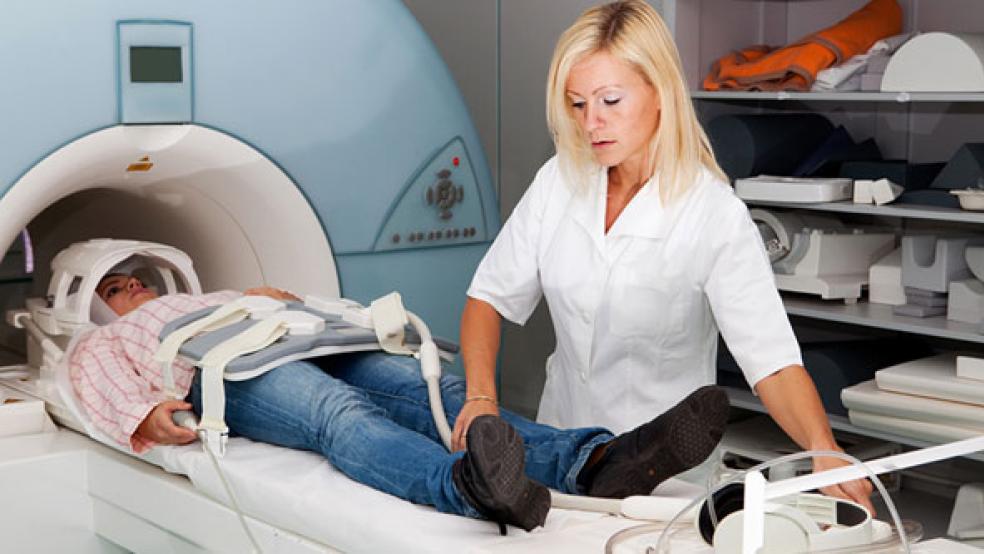Last week, physician groups representing nearly half of America’s doctors issued guidelines that would limit Americans’ access to allegedly unnecessary medical tests and procedures. The public reaction was noticeable for the one thing that was missing – a public outcry against rationing.
That was reserved for the floor of the U.S. House of Representatives on a completely separate issue. The Republican majority last week cast another symbolic vote against what it calls rationing in the health care reform law better known as Obamacare.
The House by a 223-181 party-line margin eliminated the Independent Payment Advisory Board, whose job under the law is to recommend cost-cutting measures for Medicare whenever the program’s costs grow substantially faster than the rest of the economy. The bill isn’t expected to go anywhere in the Senate.
On the other hand, nary a negative vote or press release greeted the recommendations from the nine medical specialty societies, which urged their members to trim the use of 45 common screening tests and office procedures where the risks often outweigh the benefits. Some groups have estimated that nearly a third of the $2.5 trillion the nation spends each year on health care is wasted, often through the use of screening tests on otherwise healthy people that turn up false positive results that lead to further procedures that sometimes cause harm.
High on the list of routine medical approaches being called into question were annual cardiac stress tests in healthy middle-aged adults; the prescription of antibiotics for children with sniffles and ear aches; and immediate imaging tests for people with backaches, which is a common complaint in sedentary societies. While the medical societies took on a few hot button issues like the frequency of colonoscopies for older adults, it avoided mammography, which during the debate over health care reform led critics to accuse the U.S. Preventive Services Task Force (USPSTF) of rationing because it recommended against routine mammography in women under 50.
Why didn’t the latest recommendations generate a similar outcry? The physician groups’ recommendations were greeted with enthusiasm by the very same “rationers” that had backed USPST in the mammography dust-up. “This could be a turning point if it’s approached with energy,” said Donald Berwick, the former head of the Centers for Medicare and Medicaid Services in an interview with Kaiser Health News. “Here you have scientifically grounded guidance from a number of major specialty societies addressing a very important problem, which is the overuse of ineffective care.”
Berwick, now a senior fellow at the liberal-leaning Center for American Progress, ran the well-regarded Institute for Healthcare Improvement before entering the Obama administration. He earned high marks for helping hospital systems around the world deliver better outcomes at lower costs by eliminating waste and focusing attention on relatively cheap things – like routine hand-washing by surgeons or giving aspirin to heart attack patients – that actually improve quality.
He was never confirmed by the Senate because Republicans repeatedly attacked him for promoting rationing. In a departing interview with the New York Times last December, Berwick said, “Much is done that does not help patients at all and many physicians know it.”
Now leading physician groups are saying the same thing. A few press accounts last week did drum up physicians and patients who warned that every patient is unique. They said the decision as to what tests, drugs and procedures will be used ought to be left to physicians and patients.
That is the takeaway from this latest set of recommendation, which, of course, are not binding on rank-and-file physicians across the country. Rationing is okay if it is self-imposed: if you think the test, drug or procedure is not right for you; if your doctor does not think it is right for you; or if you cannot afford it because your insurance company, using the same scientific criteria used by the nine medical societies, decides not to cover it or makes the co-pay too high.
But heaven forbid the government, which through Medicare, Medicaid, the Veterans Administration and other programs pays for half of all health care in America, should use the same criteria to limit payments or increase co-payments for those tests, drugs and procedures that medical science shows causes more harm than good. Then, it is rationing.





